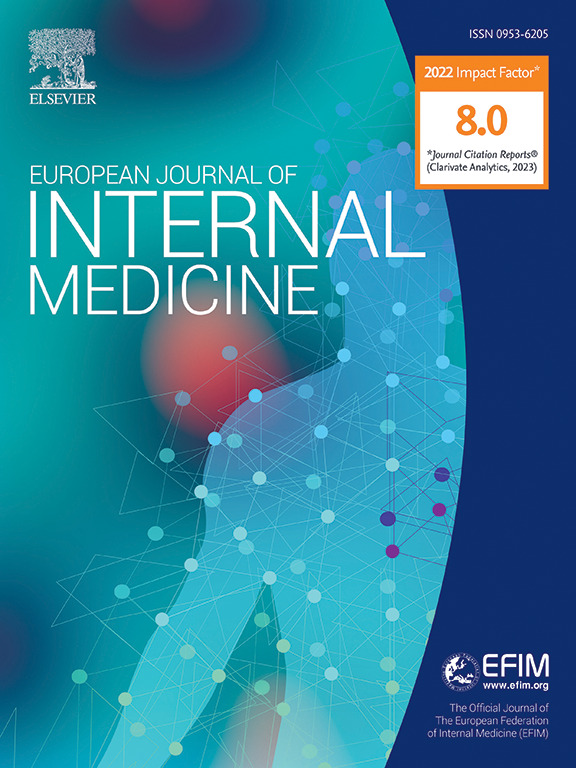Assessment of cardiovascular, thromboembolic and cancer risk in patients eligible for treatment with Janus Kinase inhibitors: The JAK-ERA multidisciplinary consensus
IF 5.9
2区 医学
Q1 MEDICINE, GENERAL & INTERNAL
引用次数: 0
Abstract
Introduction
JAK inhibitors (JAKi) have emerged as effective treatments for chronic inflammatory diseases, including gastrointestinal, dermatological, and rheumatological conditions. Despite their efficacy, concerns about their safety profile necessitate a comprehensive framework for their optimal use. This study aimed to establish an expert consensus (the JAK-ERA [Janus Kinase-inhibitors Evidence-based Risk Analysis] Multidisciplinary Expert Consensus) on the principles guiding JAKi therapy to maximize therapeutic benefits while mitigating risks.
Methods
A Delphi method was employed, gathering opinions from experts across multiple disciplines. This iterative process involved rounds of surveys and feedbacks to synthesize diverse expert knowledge into a cohesive set of principles and consensus statements. The multidisciplinary panel included specialists in cardiology, oncology, hematology, gastroenterology, dermatology, and rheumatology.
Results
A total of 6 overarching principles and 13 expert consensus statements were developed. The percentage of agreement ranged between 78 and 100 %. The principles highlight the importance of rapid intervention to prevent complications and alleviate psychological burdens. Detailed risk assessments for cardiovascular (CV), thromboembolic, and cancer risks were deemed essential. Recommendations included using validated tools for CV risk evaluation, comprehensive thromboembolic risk assessment, and routine cancer screenings based on standard protocols. Multidisciplinary collaboration was stressed to ensure precise risk management and optimal therapeutic outcomes.
Conclusion
The consensus provides a structured approach to JAKi therapy, balancing efficacy with safety considerations. The overarching principles and expert consensus statements offer a robust framework for clinical practice, ensuring that JAKi use is tailored to individual patient profiles, thereby enhancing outcomes and minimizing risks. Ongoing validation through prospective studies and real-world data is essential to further refine these recommendations.
求助全文
约1分钟内获得全文
求助全文
来源期刊
CiteScore
9.60
自引率
6.20%
发文量
364
审稿时长
20 days
期刊介绍:
The European Journal of Internal Medicine serves as the official journal of the European Federation of Internal Medicine and is the primary scientific reference for European academic and non-academic internists. It is dedicated to advancing science and practice in internal medicine across Europe. The journal publishes original articles, editorials, reviews, internal medicine flashcards, and other relevant information in the field. Both translational medicine and clinical studies are emphasized. EJIM aspires to be a leading platform for excellent clinical studies, with a focus on enhancing the quality of healthcare in European hospitals.

 求助内容:
求助内容: 应助结果提醒方式:
应助结果提醒方式:


